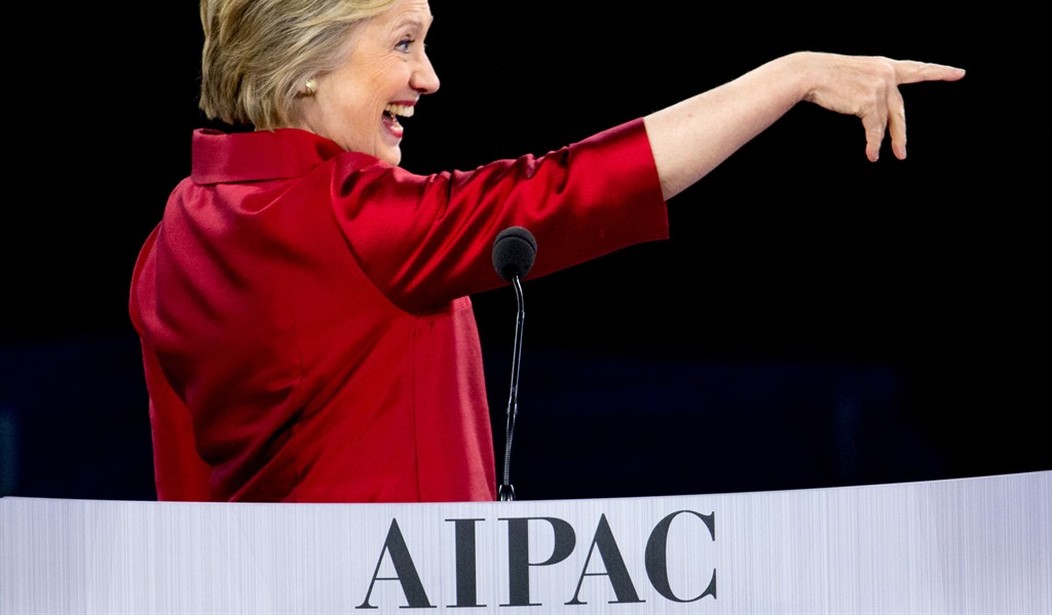We're not the only ones running the numbers and concluding that Donald Trump is an exceptionally poor bet for Republicans hoping to defeat Hillary Clinton in the fall. Elections analyst Michael Barone, a veritable walking encyclopedia of political knowledge, examines the data and reaches the same preliminary verdict. Writing at
Advertisement
In the RealClearPolitics.com average of recent polls, Trump trails Clinton by six points, 47 to 41 percent. Ted Cruz, in contrast, leads Clinton 46 to 45 percent. Ex-candidate Marco Rubio and splinter candidate John Kasich have been running even better. All at least equal the 46 percent that is the lowest percentage won by either party’s nominee this century. Against each of them Clinton falls short of that. Trump’s poll performance is not just a momentary blip. In 49 polls conducted matching him against Clinton starting last May, Trump led her in four, tied her in two, and lost to her in 43...His current 41 percent is his lowest showing in the RCP average since last August, when people were just starting to seriously contemplate his candidacy. Polls typically show 60-plus percent of voters with unfavorable feelings toward him, even worse than Clinton’s 50-plus percent unfavorable rating. Trump’s standing could decline further if and when he is nominated.
Trump’s weakness is confirmed by polling in the dozen target states whose votes will, if current patterns hold, determine the outcome in November. Trump trails Clinton in RCP averages in eleven of the twelve, including North Carolina, which Mitt Romney carried in 2012. The exception is Colorado, in a single poll conducted last November, in which Cruz still ran stronger...if you still have a product that 50 percent of the voters won’t buy, you lose the election. The addition of new voters might nudge Trump’s unfavorable numbers down to 60 percent. But that’s still a losing number, since Clinton seems to be holding nearly 90 percent of Democrats, although one-third don’t consider her honest or trustworthy. Some may believe that Trump’s favorable numbers could improve and make him more competitive. That hasn’t happened so far. His celebrity helped him corral a lot of votes early, and he’s held on to them. Exit polls show his voters have been committed for months, with late deciders going mostly to other candidates. Trump has won 37 percent of Republican votes and is regarded unfavorably by more than 60 percent of general-election voters. It’s hard to get from there to 270 electoral votes.
Recommended
Advertisement
Barone's column concedes that Trump's presence has attracted increased attention to the GOP race, contributing significantly to increased voter participation. But even after you account for Trump's new voters and crossover Democrats, the numbers still don't add up. The swing state surveys he quotes are particularly problematic, especially in light of the fact that virtually every single voter knows who Donald Trump is and has already formed an (overwhelmingly negative) opinion of him. And Barone's analysis doesn't even touch on worrisome questions such as, "might Utah be vulnerable for Republicans with Trump at the helm?" Also, the polling averages he relays in the piece are already out of date. Hillary has expanded her head-to-head lead over Trump to nearly double-digits:
Hillary's head-to-head polling average lead over Trump has swelled to ~10 points: pic.twitter.com/jCpMVxU3g1
— Guy Benson (@guypbenson) March 22, 2016
The American people are, let's just say, not excited about the prospect of a Trump presidency -- with many voters noticing that he's a cartoonish, low-information insult machine with a juvenile, hair-trigger temperament:
From the crosstabs of the @nytimes/@CBSNews poll: A full 50% would be "scared" about what Trump would do in office pic.twitter.com/1zqKUrtOPs
— Zach Montellaro (@ZachMontellaro) March 22, 2016
Advertisement
By comparison, the "scared" crowd contracts to just 35 percent for Hillary, 28 percent for Cruz, 27 percent for Sanders, and nine (!) percent for Kasich. Add in voters who are "concerned" about what Trump would do in office, and you end up with approximately 7 in 10 voters worried or outright frightened by Trump. Yeah, let's nominate that guy, say a plurality of Republican voters, astoundingly. A majority of the red-leaning electorate has not succumbed to the bandwagon effect, however, which brings us to this infographic about the delegate chase (which excludes last night's tallies from Arizona and Utah). As the GOP girds for the possibility of a voter-induced contested convention, it's worth keeping these potential alliances in mind:
FYI:
— Guy Benson (@guypbenson) March 22, 2016
Trump + Carson + Christie (0) delegates: 692
Cruz + Kasich + Rubio + Jeb delegates: 736 pic.twitter.com/Fqd9o7E25C
A new CNN poll shows Trump's standing sliding since their last survey, with both Cruz and Kasich gaining as Rubio's supporters jump to the remaining non-Trump options. The same survey shows that fully 35 percent of GOP-leaning voters would support a conservative third-party candidacy, with another third opposing the idea because it would help Hillary -- not because they're satisfied with Trump. Further, roughly half of Republican respondents believe the party will be divided in the fall regardless of what happens. Let the great Trumpian crack-up begin?
Advertisement
























Join the conversation as a VIP Member